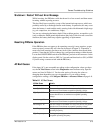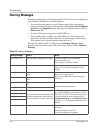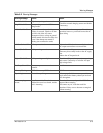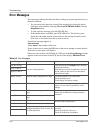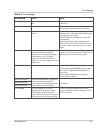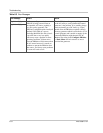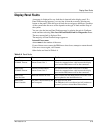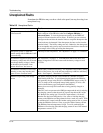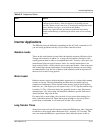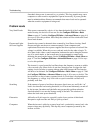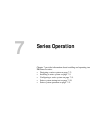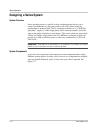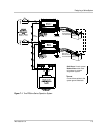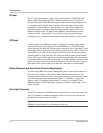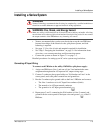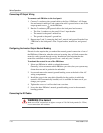
Inverter Applications
445-0089-01-01 6–11
Inverter Applications
The PROsine performs differently depending on the AC loads connected to it. If
you are having problems with any of your loads, read this section.
Resistive Loads
These are the loads that the inverter finds the simplest and most efficient to drive.
Voltage and current are in phase (i.e. in step with one another). Resistive loads
usually generate heat in order to accomplish their tasks. Toasters, coffee pots, and
incandescent lights are typical resistive loads. It is usually impractical to run
larger resistive loads—such as electric stoves and water heaters—from an inverter
due to their high current requirements. Even though the inverter can most likely
accommodate the load, the size of battery bank required would be impractical if
the load is to be run for long periods.
Motor Loads
Induction motors (motors without brushes) require two to six times their running
current on start up. The most demanding are those that start under load (e.g.
compressors and pumps). Of the capacitor start motors (typical in drill presses,
band saws, etc.), the largest you can expect to run is 1/2 to 1 hp (the transfer relay
is rated at 1 1/2 hp.) Universal motors are generally easier to start. Since motor
characteristics vary, only testing will determine whether a specific load can be
started and how long it can be run.
If a motor fails to start within a few seconds or loses power after running for a
time, it should be turned off. When the inverter attempts to start a load that is
greater than it can handle, it will turn itself off after a few seconds.
Long Transfer Times
Xantrex has observed a specific situation where the PROsine may take a long time
to transfer to invert mode when shorepower fails - maybe 0.1-0.2 seconds. This
can occur when the PROsine is power motor loads where the motor is able to
Unexpected behaviours It is possible to cause the PROsine to behave in an unexpected fashion by
configuring it incorrectly. If the unit appears to be working, but not
correctly, and the reason is not clear, try resetting the configuration to the
factory defaults (see page 4–4) and test the unit further:
Xantrex may request that this procedure be performed before doing
further troubleshooting or authorizing the return of the unit for warranty
service.
Table 6-5
Unexplained Faults
Error Details



